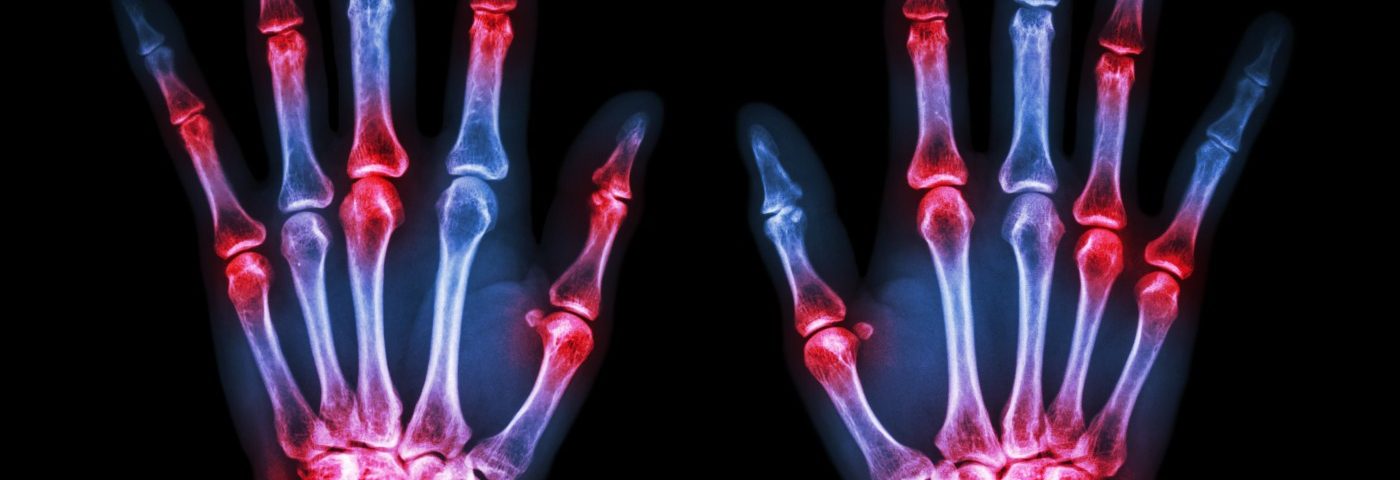Treatment with the investigative drug baricitinib is more effective than Humira (adalimumab), an FDA-approved therapy, in improving joint pain, stiffness and tiredness in patients with rheumatoid arthritis (RA) who have an inadequate response or intolerance to conventional synthetic disease-modifying antirheumatic drugs (DMARDs).
The findings result from two Phase 3 clinical trials: RA-BEAM (NCT01710358) and RA-BUILD (NCT01721057) developed by Eli Lilly and Incyte.
The data were recently presented at this year’s American College of Rheumatology (ACR)/Association of Rheumatology Health Professionals (ARHP) Annual Meeting Nov. 11-16 in Washington, D.C.
“This analysis looked at important aspects of rheumatoid arthritis such as the pain, morning joint stiffness and tiredness that are common and debilitating symptoms for patients,” Terence Rooney, MD, Lilly’s senior medical director for baricitinib, said in a news release.
“Our study results show that treatment with baricitinib rapidly led to significantly greater symptom improvement compared to adalimumab [Humira] and placebo. The results are very encouraging, and further support baricitinib as a potential oral treatment for those living with RA.”
Baricitinib is an oral drug under evaluation for the treatment of inflammatory and autoimmune diseases. It works by inhibiting the proteins Janus kinase (JAK) 1 and JAK2, both of which are widely expressed and responsible for signaling inflammatory reactions associated with the pathology of RA.
The 52-week RA-BEAM study followed 1,307 patients with active, moderate-to-severe RA, in whom treatment with methotrexate alone failed. Results showed that patients treated with a once-daily dose of baricitinib (4 mg) had significant improvement in joint pain, severity of morning joint stiffness and tiredness, compared to placebo, as early as day 3.
Patients also showed significant improvement in the duration of morning joint stiffness by day 5. Importantly, these improvements were significantly greater than those obtained with Humira (twice-weekly 40 mg) by day 17 (joint pain), day 19 (severity of morning joint stiffness) and day 21 (tiredness).
Although Humira induced fewer side effects, baricitinib induced similar side effects as a placebo, with the most common adverse events being nasopharyngitis and bronchitis. Discontinuation of treatment due to adverse side effects occurred with similar frequency in all groups.
The RA-BUILD study included 684 patients from 22 countries with moderately to severely active RA, who had an inadequate response or intolerance to at least one conventional synthetic DMARD or who had never received a biologic DMARD.
Patients were divided into the placebo or baricitinib (2 or 4 mg, once-daily) groups. Results indicated that baricitinib (4 mg) significantly improved joint pain by day 4, severity by day 4, duration of morning joint stiffness by day 10, and tiredness by day 3, compared to a placebo.
Both the baricitinib and placebo groups included patients who developed serious infections, but the most common adverse effects were consistent with previous studies of baricitinib.
“Across its pivotal studies, baricitinib has consistently shown significant and rapid improvement of some of the most commonly felt symptoms experienced by patients with RA,” said Steven Stein, MD, chief medical officer at Incyte.
“These data, especially the strong patient-reported outcomes in patients who did not have an acceptable response with their previous conventional synthetic DMARD therapy, underscore previous results and the potential benefits of baricitinib seen in patients with this devastating disease,” he said.


